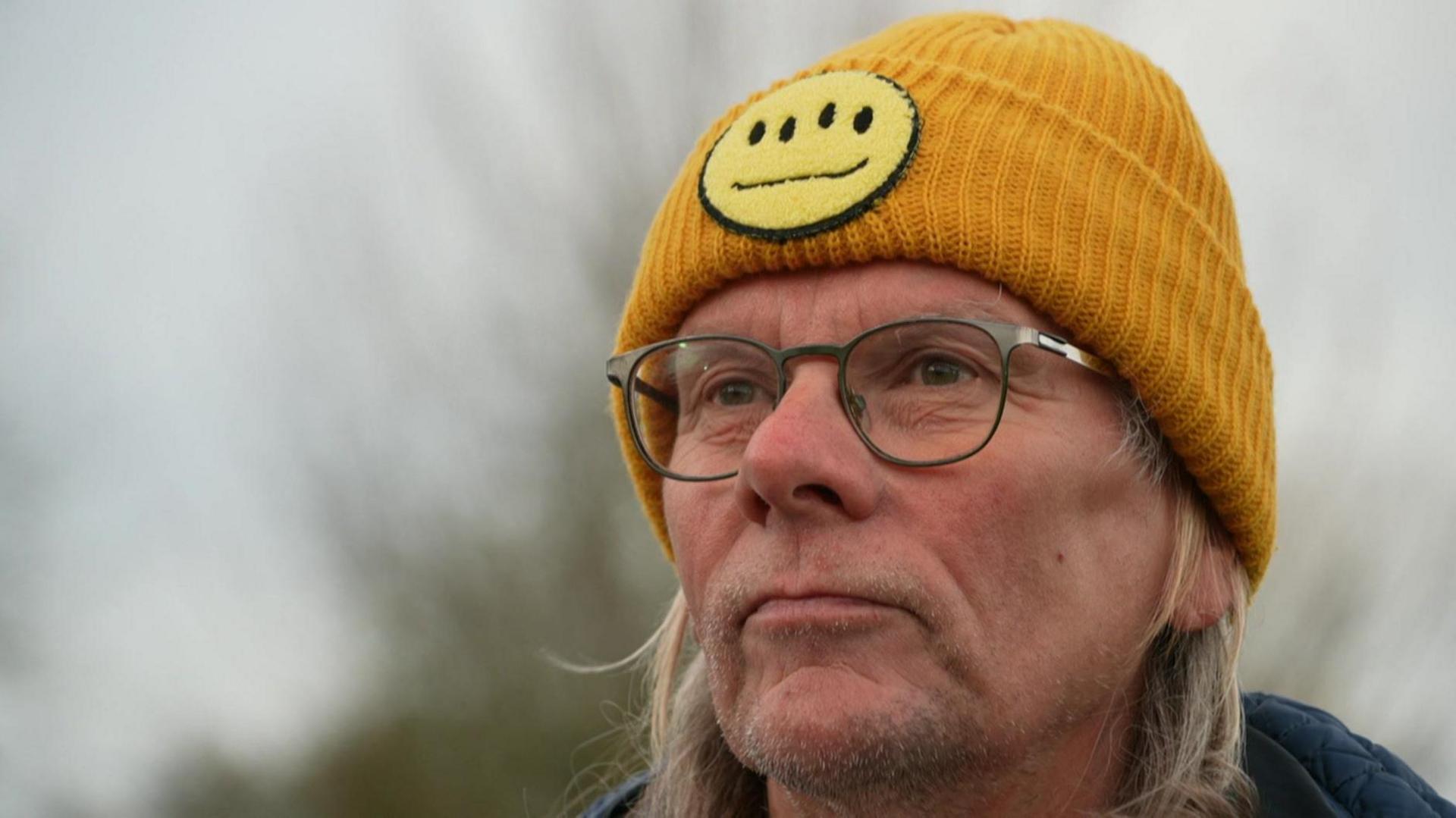'Death cafes make talking about dying less scary'
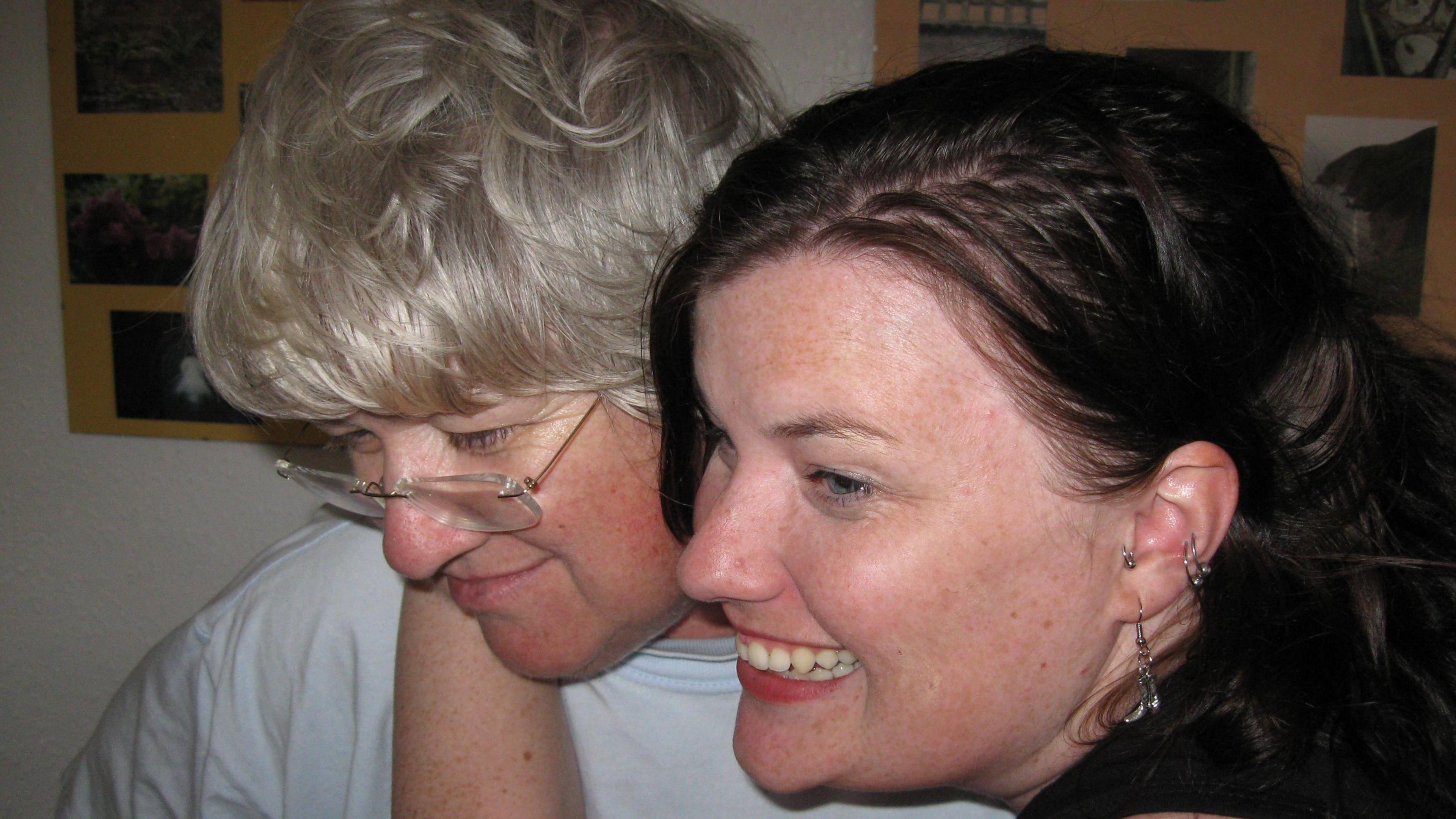
Hannah Todd with her mother, Judith
- Published
In a quaint coffee shop, over tea and cake a group are deep in conversation. The topic? Death.
While it may seem strange to some, for others, a death cafe is a safe and inclusive place to discuss all matters to do with death and dying.
For Hannah Todd, running the Liverpool death cafes has led to a career change as well as helping others to talk about a subject that is often seen as a taboo.
The 38-year-old, who is now an independent funeral celebrant, said: "Some people totally get it, some people don't.
"People don't want to talk about it [death]," she said.
"I think they're not talking about it [and] in the suppressing of those feelings, really is where we start to cause problems.
"People think that somehow by talking about death, you are going to make it happen faster, but the more we talk about death and dying, the easier it should become."
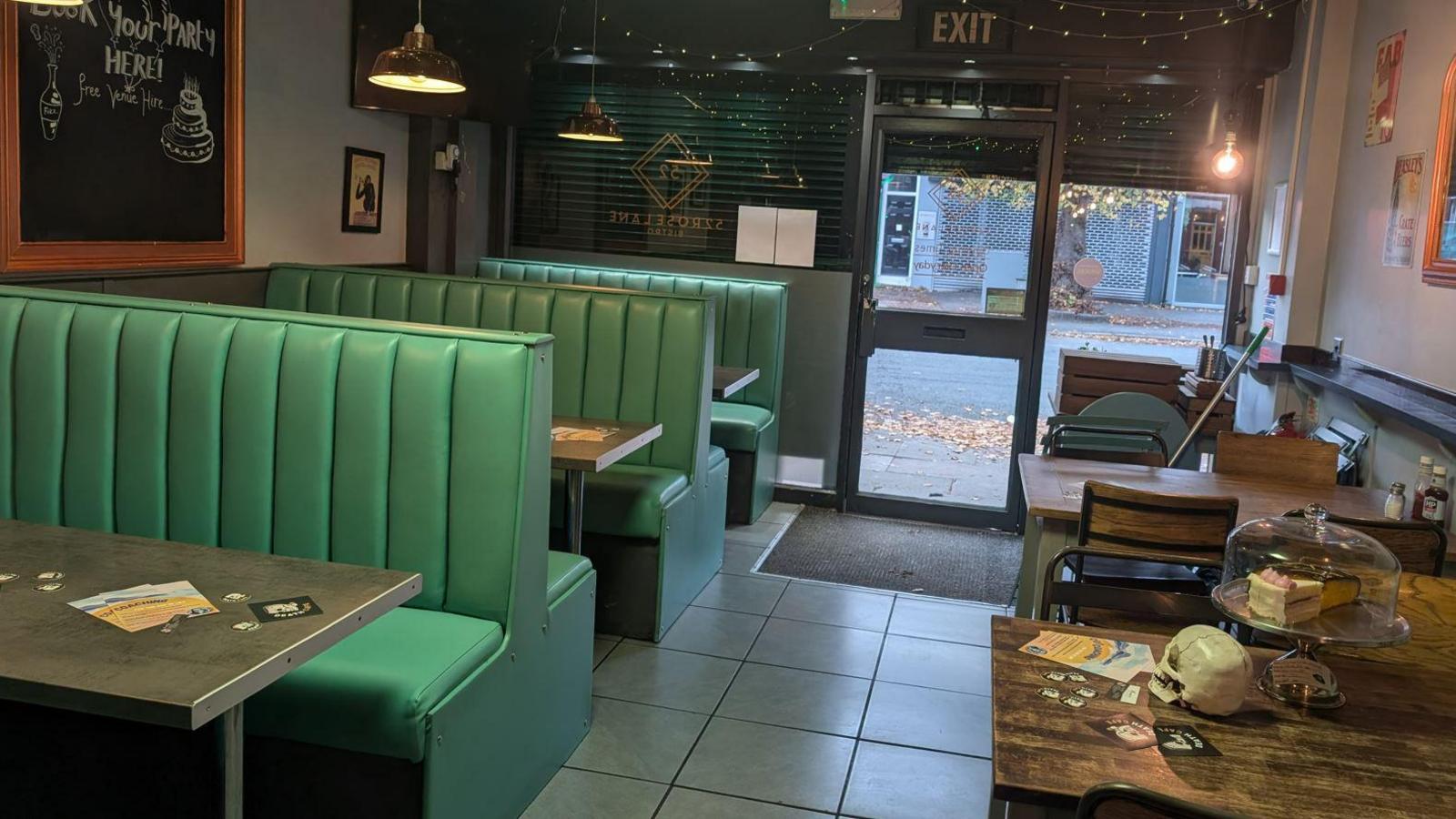
Hannah holds the events in Liverpool every month at the Rose Lane bistro
A death cafe is described as a group-directed discussion of death with no agenda, objectives or themes.
It is a discussion group, rather than a grief support or counselling session, but Hannah says she offers discussions about grief at her other "coffee mourning" sessions.
She admits she is not a trained counsellor, but someone people can turn to.
"I'm just a person that is aware that grief is hard and not everyone is capable of talking about it."
Conversations vary at Hannah's cafe meetings, with some guests sharing personal stories or others discussing the Big Bang, when does death occur and where life began.
Hannah began death cafes several years ago and then restarted them during the Covid-19 pandemic.
"During coronavirus we were talking about death in such a bizarre, abstract way, all those numbers every single day.
"Funerals weren't the same, grief wasn't the same, everything was sort of stuck and delayed.
"I thought it was really important people got a chance to talk about things that maybe they felt uncomfortable talking to friends and family about."
During the pandemic Hannah decided to change careers. After running a café on Allerton Road, Liverpool, for several years she decided to become a funeral celebrant.
Funeral celebrants are a qualified officiant, usually from a non-clergy background and typically help organise and conduct funerals, supporting the bereaved family with the aim of celebrating the life of the person who has died.
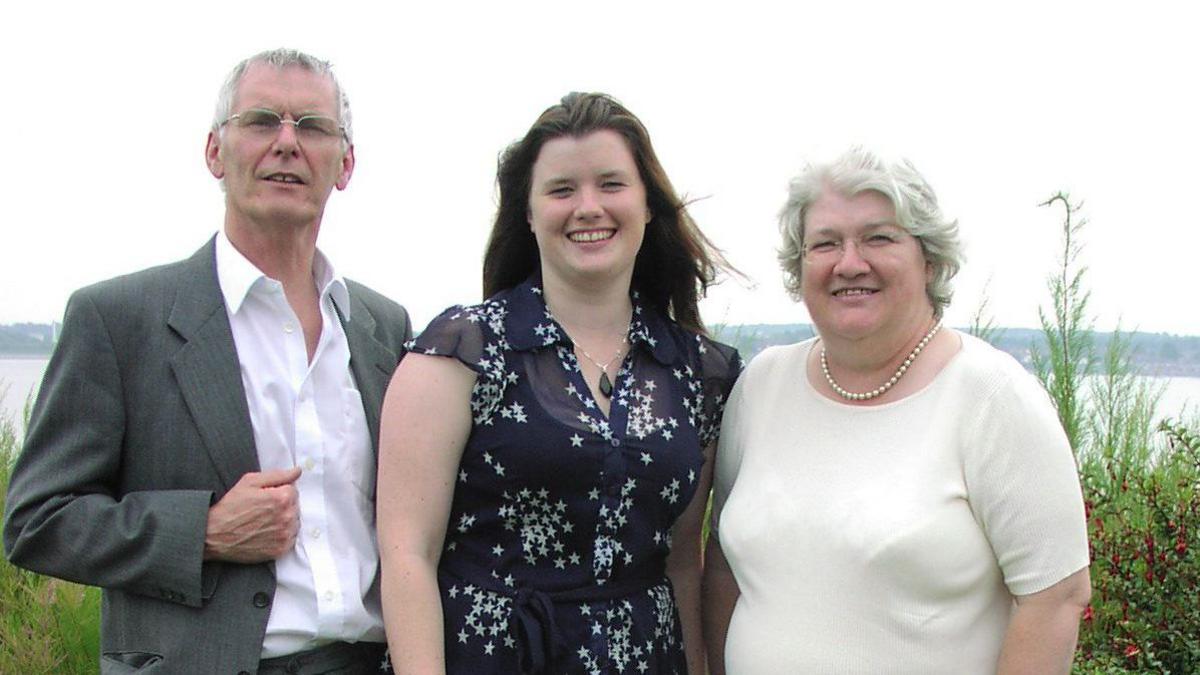
Hannah Todd with her mother and father in 2008
When Hannah was 15 a close schoolfriend, David, died from cancer.
"He was perfectly well until he wasn't, and then he was just gone".
It was the first funeral she went to.
Her mother, Judith Todd, died on 1 June 2017 and she says her death set her on this path.
"I've been to more funerals than birthdays and it's been that way for a little while," she added.
Hannah describes the feeling of a parent dying as similar to being a child who is lost in a supermarket.
She said: "I do find it akin to when you're little and you can't find them in the aisle in a massive supermarket.
"Then you have that moment when every now and again you will remember, and it's that feeling of lost and incompleteness because unfortunately you don't get to find them again."
But the death cafes are a powerful tool to make the concept less scary, Hannah explains.
"At the end of the day it [death] will happen to everyone, we are not getting out of this alive basically.
"People feel uncomfortable because we don't talk about it more, so you don't talk about it because you don't want to make people uncomfortable, so I've just decided that I'm going to make people uncomfortable, not intentionally and not in a nasty way, but I am just going to have these conversations."
Hannah's next death cafes takes place on 30 January at Rose Lane Bistro, Liverpool.
If you, or someone you know, have been affected by bereavement, child bereavement or end of life care, you can find support through BBC Action Line.
Listen to the best of BBC Radio Merseyside on Sounds and follow BBC Merseyside on Facebook, external, X, external, and Instagram, external. You can also send story ideas to northwest.newsonline@bbc.co.uk, external
Related topics
Related stories
- Published3 December 2024
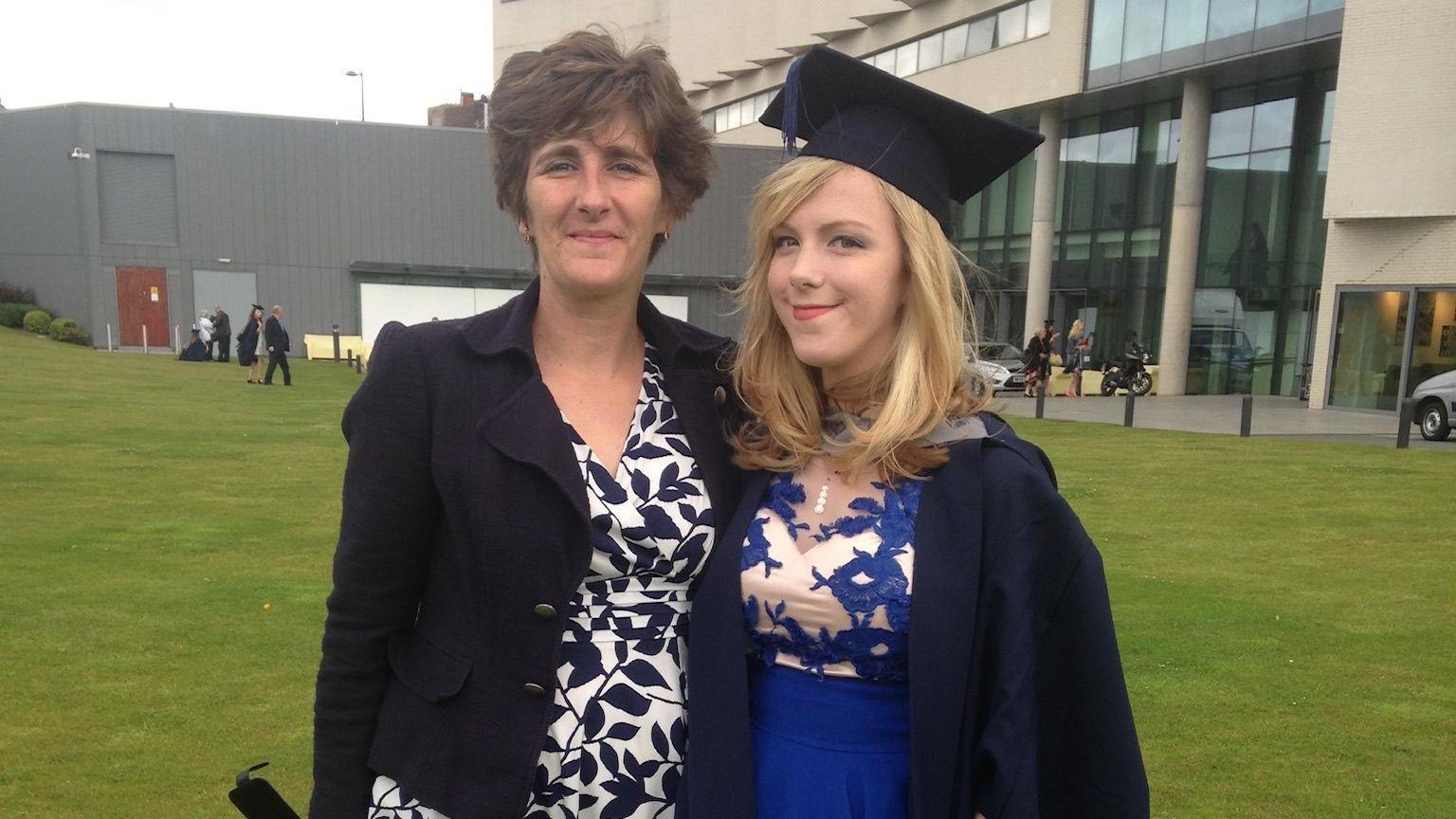
- Published4 December 2024
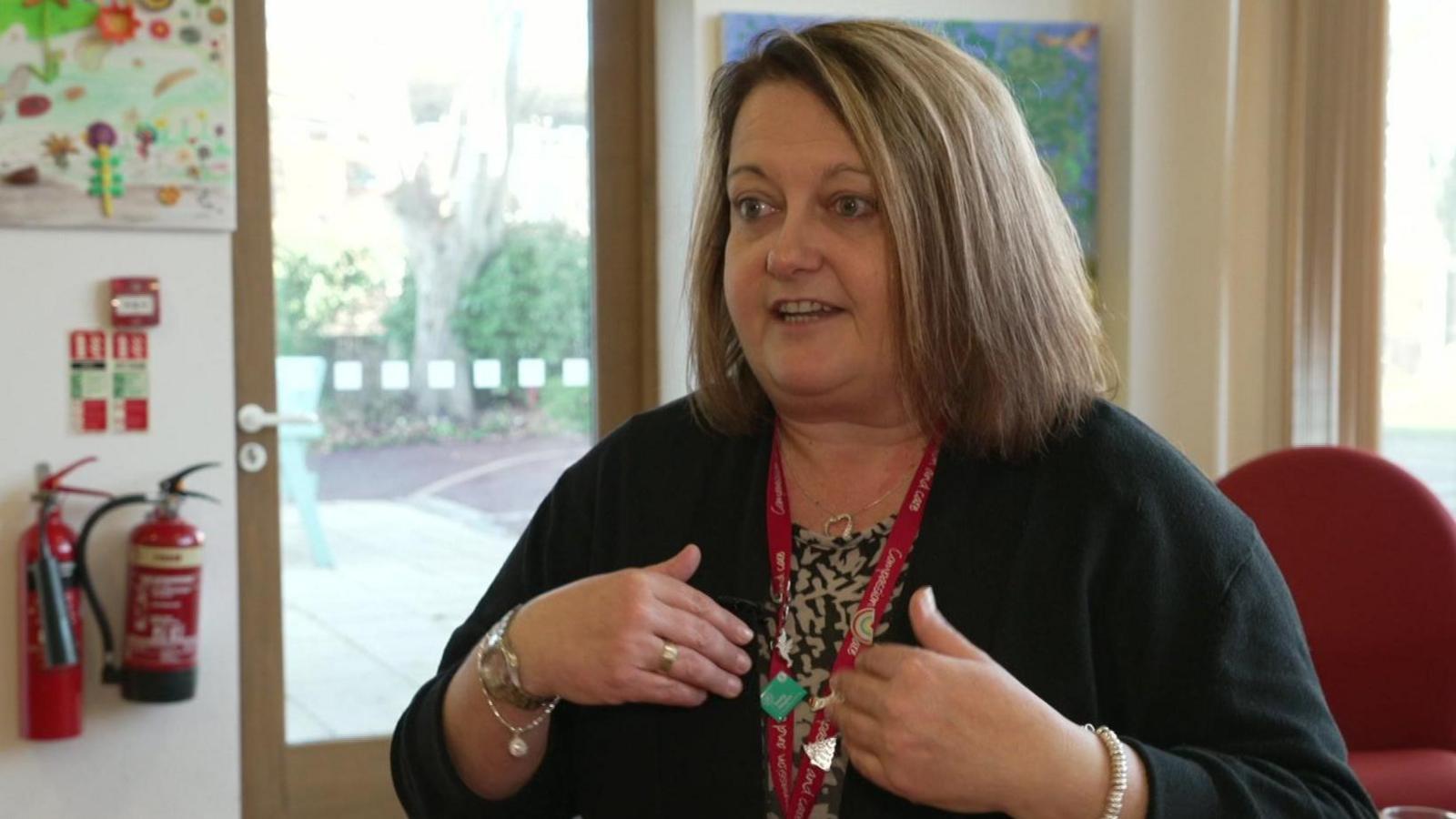
- Published2 December 2024
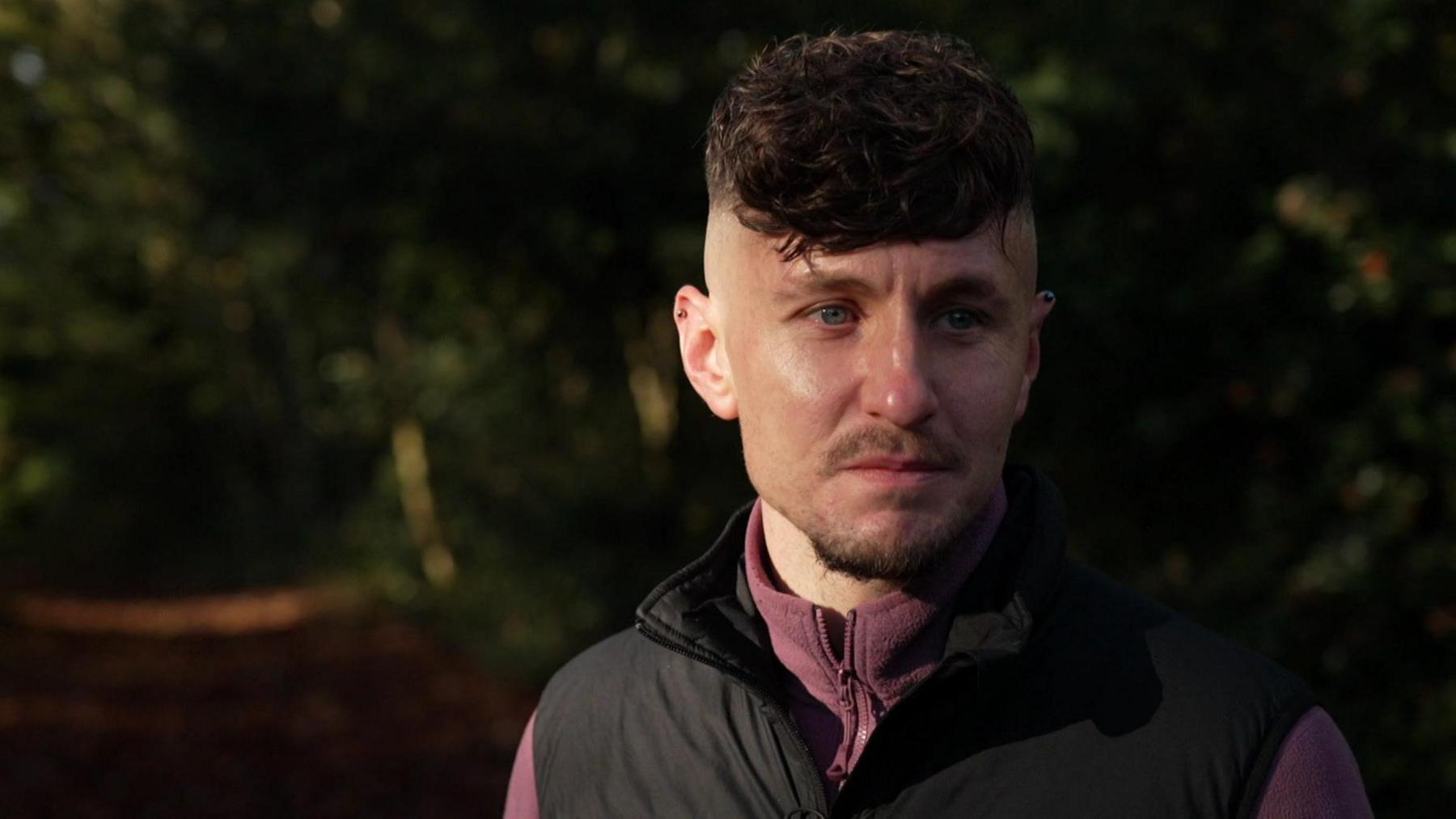
- Published5 December 2024
